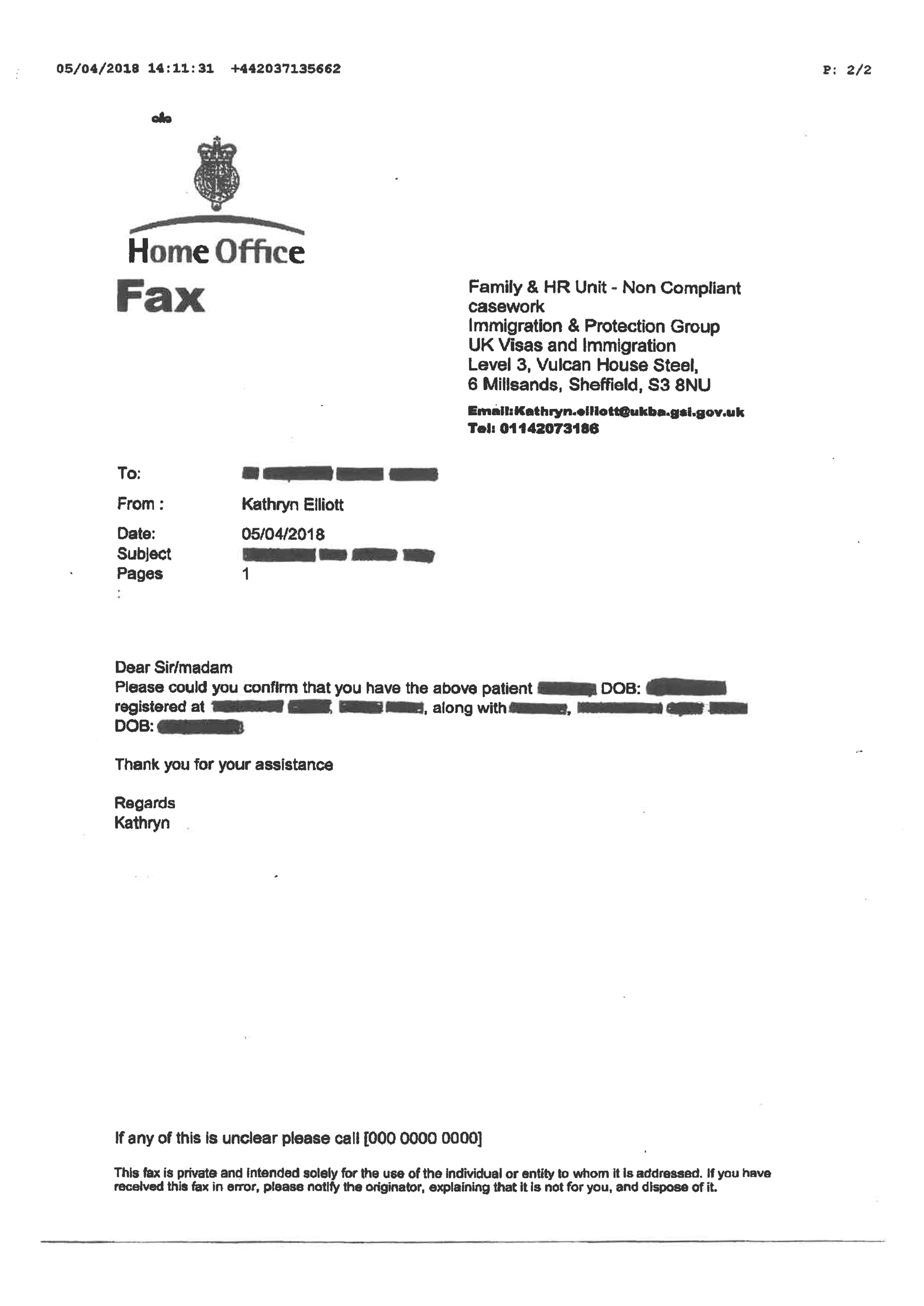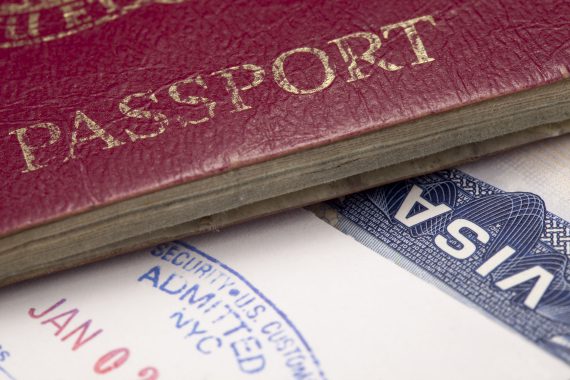Exclusive Immigration officers from the Home Office have asked a GP practice to confirm a patient’s address in a move that GP leaders are calling ‘appalling’.
The Home Office’s Immigration and Protection group sent a letter to the practice, located in East London, which then immediately contacted the LMC for advice.
The Home Office letter, a redacted version of which Pulse has seen, asked the practice to ‘confirm that you have the above patient’ registered at a specified address, along with another resident’s name.
Tower Hamlets LMC chair Dr Jackie Applebee has since told all GP practices in the area to decline any such requests from the Home Office, stating that a GP’s duty is to provide healthcare to patients, not to ‘police the immigration system’.
In an email to practices across Tower Hamlets, she called the situation ‘very serious’, explaining that a practice had been approached to reveal a patient’s address due to an ‘immigration issue’.
Dr Applebee advised the practice to decline the request. She stated that GPs are ‘not supposed to breach patient confidentiality unless it is overwhelmingly in the public interest’ and that ‘someone overstaying their visa, or entering this country illegally does not breach that threshold’.
The chair told GPs receiving similar letters to ‘reply very briefly saying that to provide the information would breach patient confidentiality and that you are not prepared to do this’.
This news comes after NHS Digital, the Department of Health and Social Care and the Home Office signed a memorandum of understanding in January 2017, which allowed the Home Office to request patient information from NHS Digital.
And earlier this year, when the MOU was renewed, the DHSC said that patients should have a ‘reasonable expectation’ that their non-medical data would be shared between government officers.
But Dr Applebee told Pulse: ‘GPs are not border guards and I think that it is appalling that practices are being asked to provide patient details to the Home Office.
‘Our duty is to provide healthcare to our patients, not to police the immigration system. We are not supposed to breach confidentiality unless there is an overwhelming case that it is in the public interest to do so.’
She argued that if patients suspect that GPs may be providing this information, it may ‘stop many of them coming to seek the health care they need’.
The GP also warned that this would have knock-on effects to public health and the profession could ‘risk losing the trust of these vulnerable patients, which the doctor-patient relationship relies upon’.
A Home Office spokesperson said: ‘The Home Office may, when considering applications involving children, write to GPs [or other official bodies] to confirm that they are registered with them appropriately at their parents’ address.
‘This is to ensure that we are complying with our safeguarding responsibilities. We may also confirm registration and address details with GPs where, for example, there are vulnerable adults included as part of an application.’
It declined to offer further explanation beyond the statement.
But Dr Applebee said: ‘Whatever their reasons for requesting this information they are asking GPs to break confidentiality and risk losing the trust of their patients. My advice to the practice remains the same, they should decline to provide the information, the level of public interest is nowhere near that of the guidance from the GMC which would cause a GP to consider breaching confidentiality.’
The RCGP, which wrote to NHS Digital in March in light of the MOU renewal, argued there was no reason for the Home Office to have direct access to patient records, which they said could be obtained ‘via court order’.
Last year, medical charity Doctors of the World urged GPs to keep information about certain patients out of their NHS records, in an attempt to stop the details being passed onto the Home Office.
The charity created a toolkit for GPs who wanted their practices to be a ‘safe places for refugees, migrants and asylum seekers’, which included advising them to register patients with the practice’s address or that of another organisation, instead of their home address.

home office letter 2000x2827px

















